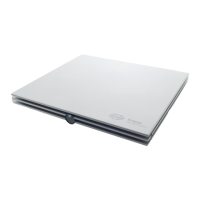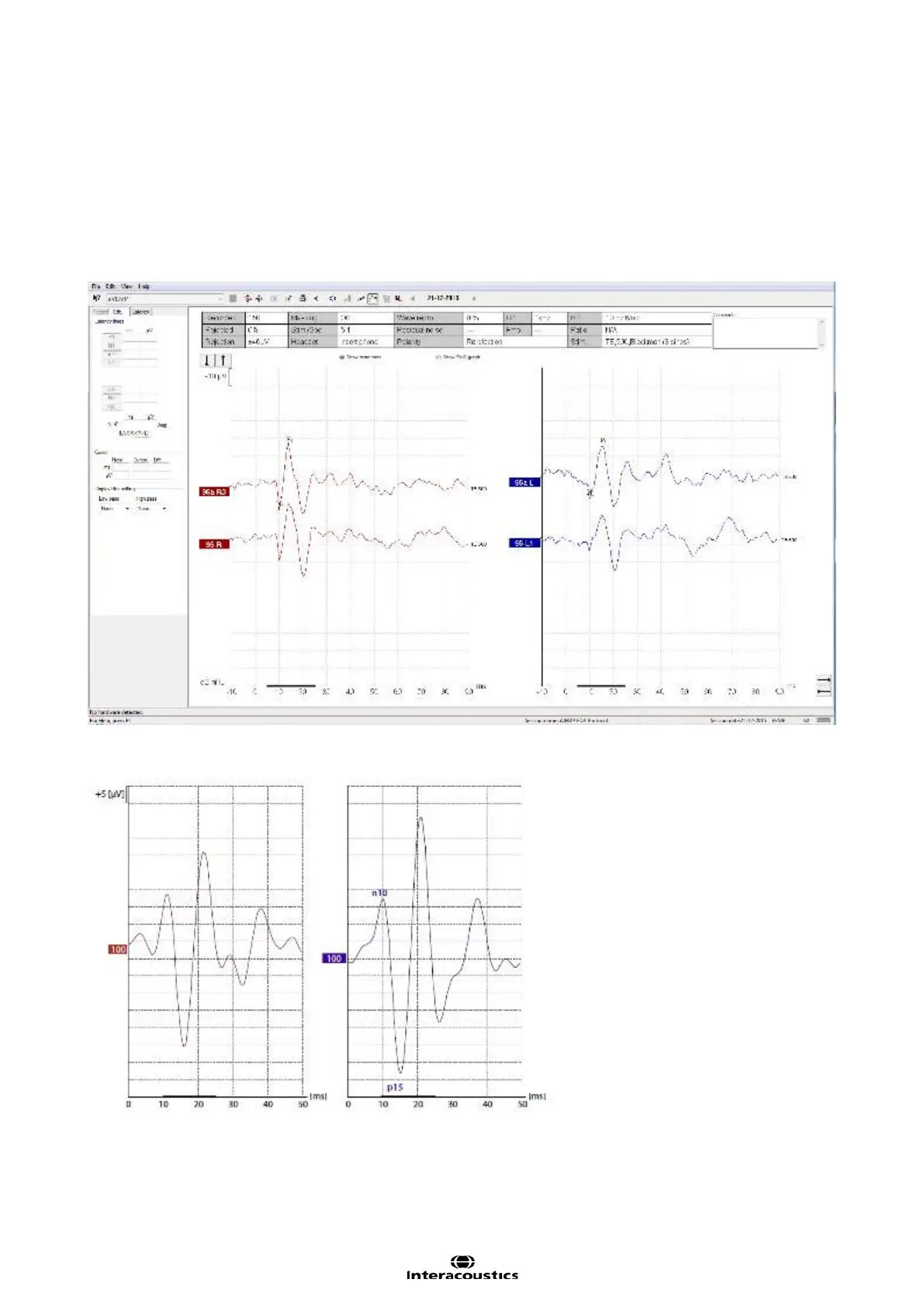Eclipse Additional Information Page 125
5.13 oVEMP Results
Patient age, stimulus type, stimulus intensity, stimulus rate, filter settings, rise/fall times, plateau settings,
electrode placement, gaze positioning are all factors that influence the resulting oVEMP waveform.
The oVEMP module does not include normative data, it is therefore important that a defined clinical protocol
is used so that patient data can be compared to a normative data set either from peer reviewed published
literature or collected by your individual institution.
oVEMP (Normal Asymmetry Ratio)
This is a oVEMP curve showing a normal asymmetry ratio of 0.11. As indicated on the screen, the value is
calculated based on scaled curves.
Example of an oVEMP recorded with insert phones, 500Hz TB at 100 dB nHL (Walther et al, 2010).

